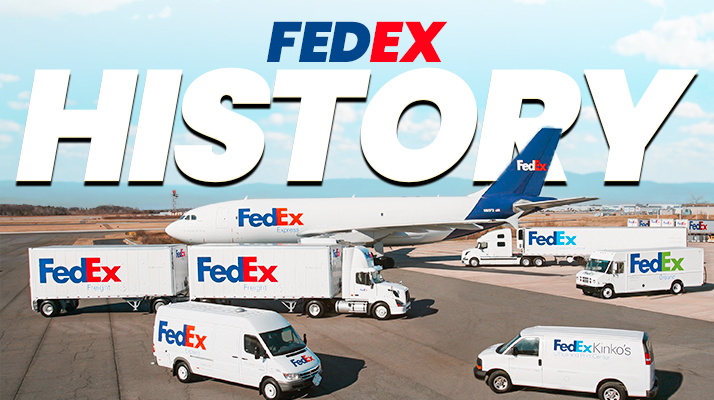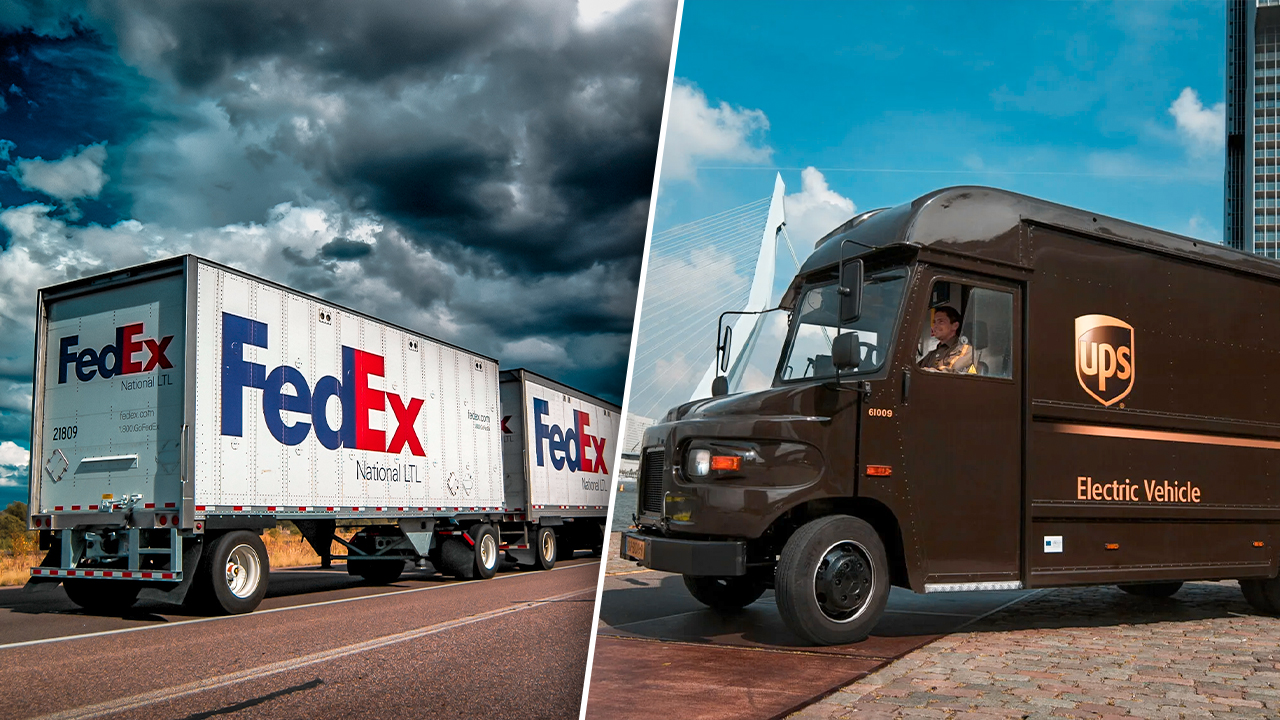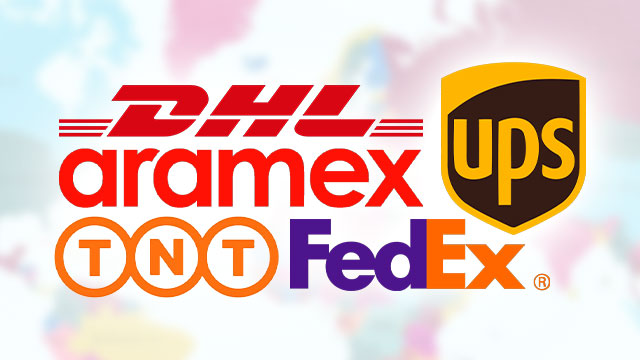The Future of Package Tracking_Predictions for the Next Decade
The Current State of Package Tracking
- Traditional Package Tracking Methods
- Advancements in Package Tracking Technology
The Impact of Package Tracking on E-commerce and Logistics
- Improved Customer Experience
- Increased Efficiency and Cost Savings
- Enhanced Supply Chain Management
Predictions for the Future of Package Tracking
- Integration of Artificial Intelligence and Machine Learning
- Expansion of Real-time Tracking and Visibility
- Implementation of Blockchain Technology
- Development of Sustainable Packaging Solutions
Challenges and Limitations for Package Tracking in the Next Decade
- Privacy and Security Concerns
- Infrastructure and Connectivity Issues
- Legal and Regulatory Hurdles
In an era where e-commerce continues to thrive, particularly driven by online trade, package tracking has emerged as a vital component of the logistics landscape.
From traditional methods to cutting-edge technology, the evolution of tracking systems has transformed the way consumers and businesses manage deliveries.
This article explores the current state of package tracking, its impact on customer experience and supply chain efficiency, and offers predictions for the next decade.
Discover how innovations like real-time visibility and blockchain technology are set to reshape the future of package tracking.
Join us as we navigate the challenges and opportunities that lie ahead in this dynamic field.
1. The Current State of Package Tracking
The current state of package tracking is rapidly evolving, catering to the growing demands of e-commerce and logistics. As online trade experiences unprecedented growth, logistics providers are prioritizing customer satisfaction. This transformation is driven by advancements in delivery technologies, including real-time tracking systems, delivery robots, and hybrid delivery models, which enhance logistics efficiency and address customer needs.Traditional Package Tracking Methods
Traditional package tracking methods often relied on manual processes, such as phone calls and paper tracking sheets, leading to inefficiencies and logistics challenges.These outdated approaches significantly hinder responsiveness and timely information dissemination, which are crucial in today’s fast-paced delivery environment. When customers depend on real-time tracking updates, slow and cumbersome manual systems can result in frustration and uncertainty regarding their orders. This lack of transparency often culminates in negative experiences, prompting customers to seek alternative options that offer enhanced visibility and reliability, such as user-friendly apps that provide real-time tracking updates.
- Customers prefer immediate access to tracking information.
- Delayed updates can lead to increased anxiety and dissatisfaction.
- Improper communication can hamper effective logistics management.
Ultimately, these limitations not only impair customer satisfaction but can also lead to inefficiencies that impact overall delivery operations.
Advancements in Package Tracking Technology
Advancements in package tracking technology, particularly the integration of AI technologies and big data analytics, have revolutionized how logistics providers manage deliveries.By utilizing real-time tracking systems, delivery services can now offer customers immediate updates on their shipments, enhancing transparency and trust. These systems also facilitate flexible delivery options that cater to evolving customer preferences. The implementation of predictive analytics not only optimizes route planning but also anticipates potential delays, allowing logistics companies to proactively address issues before they escalate.
These innovations lead to impressive:
- improved efficiency
- faster delivery times
- increased customer loyalty
—all contributing to a more satisfying shopping experience. As technology continues to evolve, the commitment to enhancing delivery methods assures consumers that their packages are in capable hands, thus reshaping expectations in the industry.
2. The Impact of Package Tracking on E-commerce and Logistics
The impact of package tracking on e-commerce and logistics is profound, significantly enhancing customer experience and logistics efficiency. As the e-commerce sector continues to grow, the expectation for speedy, reliable deliveries has led to the adoption of advanced delivery technologies that cater to customer needs and preferences.Improved Customer Experience
Improved customer experience is one of the most significant benefits of effective package tracking, allowing consumers to stay informed with real-time tracking updates.
This innovative approach transforms how individuals interact with delivery services, ensuring that they feel valued and in control of their purchases, particularly through omnichannel retailing strategies that cater to diverse customer data. When customers can monitor their packages continuously, it diminishes uncertainty and enhances the anticipation of receiving their orders. Companies like Amazon have mastered this technique, providing detailed status updates that inform customers about their package's journey. Similarly, UPS’s tracking system allows users to see not only the location of their shipment but also the expected delivery time, which significantly reduces anxiety associated with waiting for a package.
- Real-time tracking contributes to:
- Enhanced communication between the service provider and the consumer, leading to trust.
- Fewer missed deliveries due to clear status updates.
As a result, businesses that prioritize real-time tracking enhance customer satisfaction, facilitating a better overall experience and encouraging repeat business.
Increased Efficiency and Cost Savings
Increased efficiency and cost savings are vital outcomes of enhanced package tracking, allowing logistics providers to optimize routes and manage delivery networks effectively.As logistics providers harness the power of big data analytics, real-time monitoring, and sustainable practices, they can significantly reduce transit times and minimize fuel consumption. Route optimization not only shortens delivery paths but also leads to less wear and tear on vehicles, making operations more sustainable.
- For instance, employing AI-driven routing software can dynamically adjust delivery sequences based on traffic conditions, weather patterns, and vehicle availability.
- Utilizing advanced logistics technology, such as GPS tracking, delivery tracking, and automated scheduling, can streamline the supply chain, resulting in quicker turnarounds and improved delivery innovations.
These cost-saving measures translate into improved delivery options, enhancing customer satisfaction and driving repeat business in an increasingly competitive market.
Enhanced Supply Chain Management
Enhanced supply chain management has become feasible through sophisticated package tracking systems that enable logistics providers to implement predictive shipping strategies.These advanced systems not only offer real-time visibility into package movements but also allow for improved decision-making and resource allocation. By utilizing predictive analytics, logistics providers can anticipate potential delays or disruptions, adjusting their operations accordingly to maintain efficiency.
This predictive capability can be broken down into several key components:
- Data Analysis: Analyzing historical shipping data helps identify trends and patterns that may indicate future issues.
- Inventory Management: Optimizing inventory levels ensures that products are available when needed, reducing the likelihood of stockouts.
- Customer Satisfaction: With accurate tracking, customers receive timely updates, enhancing their experience and trust.
The integration of package tracking and predictive analytics creates a robust framework for logistics providers, enabling smoother operations and a more responsive supply chain, especially in managing urban warehousing and last-mile delivery.
3. Predictions for the Future of Package Tracking
Predictions for the future of package tracking suggest a significant shift towards advanced technologies like AI, drones, and blockchain, which will reshape how logistics operate and deliver sustainability practices. As customer preferences evolve, the integration of these technologies will enhance predictive shipping and real-time visibility across delivery networks.Integration of Artificial Intelligence and Machine Learning
The integration of Artificial Intelligence, including AI technologies and vehicle automation, and Machine Learning in package tracking systems is poised to enhance logistics efficiency and better meet customer needs.As these technologies evolve, the potential for real-time data analysis ensures that companies can fine-tune their delivery options, significantly improving accuracy and responsiveness.
For instance, retailers like Amazon employ sophisticated algorithms to predict package delivery times more accurately, which directly impacts customer satisfaction.
- AI-driven insights allow logistics providers to optimize routes, reducing transportation costs while ensuring timely deliveries.
- Machine learning models can analyze historical data to forecast demand fluctuations, enabling companies to allocate resources more effectively.
Firms such as FedEx and DHL are utilizing advanced tracking systems that leverage AI to monitor and resolve potential disruptions proactively, enhancing their overall logistics efficiency. The future seems bright as the adoption of these innovations continues to transform the landscape of logistics management.
Expansion of Real-time Tracking and Visibility
The expansion of real-time tracking and visibility will play a crucial role in overcoming logistics challenges and improving urban warehousing strategies.As logistics providers adapt to the demands of a rapidly changing market, implementing this technology can lead to significant efficiencies in transport logistics and last-mile innovations. By ensuring that shipments are monitored throughout their journey, businesses can proactively address potential delays and optimize their delivery routes. This heightened visibility not only enhances customer satisfaction but also reduces costs associated with unforeseen disruptions.
With urban warehousing becoming more pivotal, the coordination between various stakeholders can be streamlined effectively.
- Timely updates on inventory levels
- Improved communication among distribution centers
- Facilitation of efficient last-mile delivery
Utilizing real-time tracking enables logistics providers to adapt swiftly, positioning them for success in a competitive landscape.
Implementation of Blockchain Technology
The implementation of blockchain technology is expected to revolutionize package tracking by enhancing supply chain transparency and security.
As logistics providers increasingly seek to enhance operational efficiency, the adoption of distributed ledger systems offers a unique solution. By allowing real-time access to package data, stakeholders, including customers, enjoy unparalleled visibility into their shipments’ journeys. This technological advancement not only minimizes discrepancies but also builds a trust framework, where each transaction is recorded immutably.
Further, the decentralized nature of blockchain mitigates risks associated with fraud, thus ensuring accountability at every stage of the logistics process.
- Enhanced Accuracy: Real-time tracking helps in reducing misplacements and lost items.
- Increased Trust: Both logistics providers and customers can verify the integrity of data.
Ultimately, with blockchain’s capability to streamline information flow, the logistics industry is poised for a transformative shift in how packages are tracked and managed.
Development of Sustainable Packaging Solutions
The development of sustainable packaging solutions is pivotal for addressing environmental concerns while maintaining economic sustainability in logistics.This evolution not only enhances the overall brand image but also aligns closely with growing consumer preferences for eco-friendly practices. Companies are increasingly recognizing that meeting sustainability trends is no longer just an option; it's a necessity for market competitiveness.
By adopting biodegradable materials and minimizing waste through innovative designs, businesses can demonstrate their commitment to environmental responsibility. Adhering to stringent regulatory requirements enhances credibility and can foster loyalty among environmentally conscious customers.
- Incorporating recycled content
- Reducing plastic usage
- Implementing efficient supply chain practices
These strategies not only cater to customer demands but also contribute to a healthier planet, ultimately impacting purchasing decisions positively.
4. Challenges and Limitations for Package Tracking in the Next Decade
Challenges and limitations for package tracking in the next decade will primarily revolve around privacy and security issues, as well as infrastructure and connectivity challenges that logistics providers will need to address.Privacy and Security Concerns
Privacy and security concerns remain paramount in package tracking, as increased visibility can expose sensitive customer data and logistics operations.
In the age of digital convenience, where consumers expect real-time updates, the implications of such transparency can be troubling. While tracking enhances efficiency, it also presents vulnerability to data breaches and unauthorized access. For businesses and consumers alike, understanding the risks associated with tracking systems is crucial.
- Potential Risks: Cyber-attacks on tracking systems can lead to exposure of personal information, along with the possibility of delivery hijacking.
- Mitigation Strategies: Employing encryption, multifactor authentication, and regular security audits can significantly reduce potential threats.
Ultimately, maintaining a balance between accessibility and safeguarding private information is essential for the credibility and trustworthiness of package tracking services.
Infrastructure and Connectivity Issues
Infrastructure and connectivity issues pose significant challenges for logistics providers aiming to implement advanced package tracking systems effectively.In today's fast-paced logistics environment, the need for efficient infrastructure is paramount. With a growing reliance on real-time data, each link in the supply chain—from warehousing to retail—must facilitate seamless information flow.
When basic connectivity is compromised due to poor network coverage or outdated systems, it not only delays delivery times but also leads to increased operational costs.
- Inadequate hardware can slow down data processing and hinder the accuracy of tracking systems.
- Similarly, software integration across different platforms can be difficult without a robust framework.
Ultimately, successful logistics operations depend on addressing these connectivity challenges to maintain a competitive edge and enhance customer satisfaction.
Legal and Regulatory Hurdles
Legal and regulatory hurdles can complicate the implementation of new package tracking technologies, requiring logistics providers to navigate complex compliance landscapes and ensure that their operations meet the standards set forth by governing bodies. This intricate web of rules not only encompasses data privacy and security requirements but also includes various international shipping regulations, which can shift dramatically from one jurisdiction to another.The implications of these regulations are vast, and non-compliance can lead to significant penalties and disruptions in service. Therefore, it is crucial for logistics providers to stay informed about:
- Data Protection Laws: Ensuring that customer information remains secure and is handled according to legal standards.
- Trade Regulations: Understanding import and export requirements for different countries.
- Carrier Compliance: Making sure that all partnering carriers meet industry regulations.
These considerations emphasize the importance of having a knowledgeable compliance team that can adapt to changing laws, thereby ensuring the smooth adoption of tracking technologies while maintaining customer trust and operational reliability.







